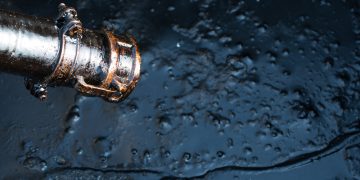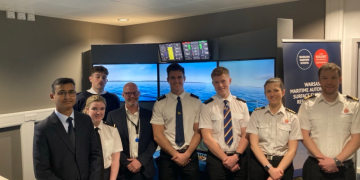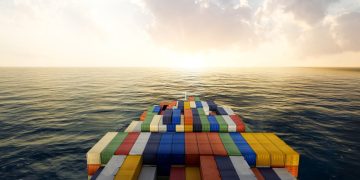Time to refocus?
DNV Cruise Update interviewed Mr Svensen to get his and DNV’s views on safety and what is required to step change safety performance.
DNV: What are the industry’s key challenges seen from your perspective?
“The key challenge in my opinion is to achieve sustainable company performance over time. This includes growth in revenue and market share as well as satisfactory financial results. This is one side of the sustainability equation – the other one being the ability to build and protect a strong brand through excellent safety and environmental performance over time. Excellent safety performance with respect to major accidents is key to sustainable business performance. Cruising is about relaxing and having a good vacation experience. The industry is innovative, has enjoyed good growth and has an excellent safety record, with less than 0.16 fatalities per million passengers*). However, the Costa Concordia accident has sent us a stark reminder that statistics fade into insignificance when a serious accident happens. Irrespective of the final conclusions of the accident investigation, this accident represents a game-changer for the industry. This is simply because passengers will not accept just explanations of why such an accident happened, they want to see action taken to prevent similar accidents from occurring in the future. Looking ahead, the key challenge for the industry will be to take a giant step forward and assure the public that this has been done. I believe this is possible, but not without a proper re-think of how we manage safety in terms of people, competence, culture and barriers against failure. An interesting observation about safety is that it does not change the competitive position if nothing wrong happens, but the entire industry suffers if a major accident occurs.”
DNV: Historically, the cruise industry has a good safety performance, so why is it necessary to focus on this topic now?
“Seen in a historical perspective, the cruise industry has an excellent safety record and there have been very few major accidents. However, we must also clearly bear in mind that society’s acceptance of risk in this sector is very low. Cruising is a vacation experience and the guests expect this to be a safe experience with very little risk. As the industry is expanding, the potential for accidents is increasing simply by sheer numbers and traffic volume. For a company with five vessels and a 0.2% probability**) of a serious accident, this means one serious accident every 100 years. After growing to 50 vessels and with the same 0.2% probability **), this means one serious accident every 10 years. Most people will certainly consider the latter to be a high-risk exposure. There must be a particular focus on reducing the risk of large-scale accidents. Apart from the potential huge loss of life, one large-scale accident can ruin a company’s brand as well as seriously damaging the reputation of the whole industry. I’m also afraid that nowadays safety competes with other items on the executive agenda, such as the environment and guest satisfaction. Today, we also have a situation in which it has become less attractive to be a seagoing officer and at the same time ships and systems are increasingly complex, requiring greater expertise and capabilities. We can only navigate through these difficult waters by taking a proactive approach and going beyond a simple compliance approach to managing safety. This is all about leadership, management and setting the right priorities.”
DNV: What are the key elements in ensuring safe operation?
“Safe operation has many dimensions, but I would like to focus on the three that I think are most important. Firstly, the technical safety standard and ‘built-in’ margins against accidents or failures. Secondly, the additional safety barriers we put in place against failure. These barriers may be against technical or operational failures. And finally, the way in which we maintain the integrity of these barriers against failure over time. The first dimension is mostly covered through class and statutory rules combined with other international standards. The second ‘safety barrier’ dimension has received less focus in the maritime field than in other industries. I am a strong advocate of this way of thinking being much stronger in the shipping industry. The third dimension is, of course, obvious but often forgotten. Having safety barriers in place does not mean that they are effective over time. This has a lot to do with having the right competence and correct safety culture in place. Individuals, teams and organisations must act according to the highest standards every day, year round, both onshore and shipboard, and never ever compromise on safety. I would especially reinforce the management dimension. What management style is effective and efficient for today’s world? In the past, the leadership style was characterised by decision-making by rather authoritarian individuals and depended on the individual’s experience. With the increased complexity, it is not about individuals but about how the senior manager manages to create a high performing team where 1 + 1 is way more than 2. Now it is about how to bring the best out of all employees/ranks and merge their expertise and capabilities to form a new performance level. It is about creating a learning environment, role modelling and managing and setting the right priorities.”
DNV: What do you mean by robustness and barriers?
“By robustness, I mean that we have a design, a system or an operational procedure that will function safely even if an unexpected event or deviation happens. Recognising that rules and standards cannot cover all risks and that the actual operations and in particular the human element will introduce additional risk elements means that we have to introduce both robustness and safety-barrier thinking to the way in which we construct and operate ships. In practice, it means that we systematically identify hazards or risks and introduce measures that will prevent accidents from occurring or will mitigate the consequences if an accident occurs. In the case of a possible event that would lead to a serious or catastrophic accident, we would expect at least two independent safety barriers to be in place to prevent the accident from happening. For example, an alarm system warning the officers and crew that something is not correct is a preventative barrier. Firefighting systems help the crew to fight the fire within a short time and are a mitigating barrier. The challenge is to maintain the integrity of the systems and ensure that they work effectively and efficiently when needed. There are currently more and more systems and approaches that can help to make the vessels safer, but this is an area on which we have had most focus. It is important to use DNV’s research to understand the kind of barriers that exist and to manage these barriers to maximise vessel safety.”
DNV: But these barriers do not work if people do not do their job. Can you reflect a bit on the importance of the human factor?
“The human factor is probably the most challenging factor for us to address. And it is not only about individuals, it is about teams of individuals and the entire organisation. It covers both shore and shipboard organisations, with the company’s safety culture as a central element. A safety culture is not a statement with all the correct phrases, it is not a document, it is how work is done in real life on a day-to-day basis and this must be aligned with the documented policies. We frequently see that the statements and documents are right, but that people and teams still choose other priorities because they believe that this is what the company expects them to do. When we are talking about a safety culture, it is about how people from the corporate leadership to the ratings onboard choose the right priorities. Another key issue is what kind of priority safety has on the agenda of the top executives and the Board. It is not enough that it is on the agenda, it needs to be important and relevant. It is about walking the talk!”
DNV also discussed which advise Tor E. Svensen would give a company to revitalise safety and what would be his key recommandations. These are his points:
I) Revitalise safety on the corporate agenda, not only as an agenda item but with real understanding and insight into what the risk exposure is.
II) Build a common platform and understanding of safety and what “best
practices” are.
III) Address safety culture and the management dimension. What are modern safety management principles and what capabilities are required in the organisation.
IV) Review the real performance indicators, ensure that the KPIs do not create unnecessary conflicting goals and develop the ability to make the right decisions.
V) Do not only provide training, but also ensure that the training builds the desired competence and capabilities.
VI) Revisit promotion criteria. We frequently reward the wrong decisions if we achieve short-term positive business results through luck, and we frequently punish the right behaviour if our short-term business results suffer.
VII) Safety is an area that needs constant attention and requires us to challenge the status quo and systematically improve performance.
*) According to G.P. Wild (International) Limited
**) Illustrative probability
Author: Helge Hermundsgård
Above interview has been conducted by DNV and is reproduced with the kind permission of the author




























































